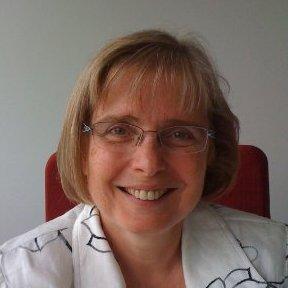The Green Building MOOC at the intersection of energy and digital transitions
Communication ADEME

As the first Green Building MOOCs both dedicated to sustainable renovation, start in France, Catherine Mongenet of France Université Numérique (France Digital University), looks back on this new form of learning still unknown for the building sector.
What is FUN ?
Catherine Mongenet : France Université Numérique was born in 2014 from an initiative of the French Ministry of Higher Education and Research. It aims to federate online courses and trainings issued by French universities and schools and to give them international visibility. FUN is a platform dedicated to higher education online with a rich catalogue of MOOCs relying on French and French-speaking universities and schools. The platform is managed by a Public Interest Group cofunded by the ministry and its members, such as ADEME (French National Energy Agency).
How did FUN get involved in developing Green Building MOOCs?
C.M. : When the French National Energy Agency, the ADEME, and the French Plan for Sustainable Buildings started their reflexion work, I personnally attended to their workshops with the actors of the building sector. During the sessions, I had the opportunity to share the lessons learned from our own experience with MOOCs and to demonstrate how this form of learning could respond to continuous training needs of the sector. As a matter of fact, lots of MOOCs are professionally oriented. And their users, most them aged between 25 and 50 years old, are engaged in a life long training process: they want to keep learning along their professional career. Along the workshops, the actors of the building sector understood how MOOCS could benefit them by answering the challenges they face in terms of training.
What makes the Green Building MOOC platform unique?
C.M. : Professionnally oriented MOOCs already exist on the FUN platform. And we could have had the Green Building MOOCs hosted on FUN. But the ADEME and its partners consider that a distinct dedicated platform makes more sense and is more efficient, for editorial, visual identity and consistency reasons.
That's why we developed a whilte-label platform to host Green building MOOCs. That way users can find all MOOC specifically dedicated to the sustainable building topics at the same place. The clarity of the visual and editorial identity allows to embark the whole construction community with a transversal visibility.
That makes this project exemplary: it's the very first MOOC platform entirely dedicated to a professional sector and suported by that same sector.
So there is already a professional use of MOOCs?
C.M. : Indeed. Not all MOOCs are general knowledge courses. There are numerous MOOCs answering the needs of professional needs all along professional life, whether for the empoyees or for the companies. Many human resources departments asked us if they could reuse or adapt some of our MOOCs to their issues. Reusing MOOCs is rapidly developing, as it is a moving ecosystem.
Comment avez-vous accompagné les organismes de formation dans cette transition ?
C.M. : FUN has three missions. We host the MOOC platform; we manage the academic university around MOOCs and digital transition. And last but not least, we also are facilitators between the higher education world and the business world. We are not meant to create MOOCs, because the universities and schools we work with have the resources and the legitimacy to create them. That's why, for Green building MOOCs we trained Florence Godefroy of the ADEME into creating MOOCS, so the ADEME can appropriate this new form of learning.
MOOC Agency, with whom we closely work on numerous projects,supports training organisations, after wining the call for projects launched by ADEME and the French Plan for Sustainable Building.
How do you see the future of MOOCs?
C.M. : I know that a dozen of new Green Building MOOCS will be published online withing the next semester, and even more by 2018. Online courses existed before MOOCs, what's new with MOOCs is the role of collaborative work and peer-to-peer exchanges through forums. The student is not alone anymore, he can rely on the community of students and internact online with them.
However online trainings can't be the panacea. In the future we should combine more tightly online trainings through MOOCs and complementary classroom-training sessions. Developing such hybrid sessions within professional trainings will reduce time spent out of the office and accommodation costs. Also, thanks to MOOCs, trainers can check if their students have acquired the required knowledge and competences to attend the classroom-training sessions.



